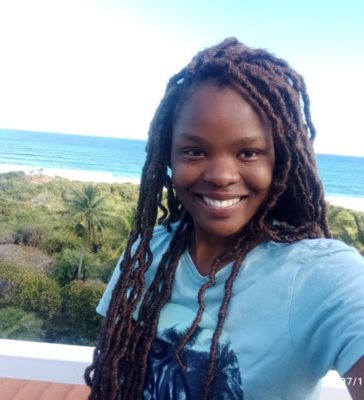
Julian Woodcock
Current Employer/Organisation Name
Viking Mines Ltd
What have you been doing since leaving Exeter, and what are you doing now?
I graduated from the MSc Mining Geology course at the Camborne School of Mines in 2001. Since then I have had a very rewarding career as a geologist in the resources industry which has afforded me the opportunity to work across the globe. I spent a couple of years working in the coal industry in the UK, followed by 8 years working in Central Asia and Russia on a variety of projects ranging from operating open pit and underground gold mines through to exploration projects which advanced through scoping studies. I moved to Australia in 2011 and worked with several large companies managing exploration programmes to discover new gold resources to sustain operating mines. In 2021 I moved back in to the Junior company sector to run an ASX listed company called Viking Mines, exploring initially for gold and more recently Vanadium.
Why did you choose this career? And what do you enjoy most about your work?
I chose my undergrad degree initially due to an interest in the outdoors and adventure. On completion I was unsure how best to apply it and was given the choice of academia or industry. I decided that I wanted to work in industry so enrolled on the MSc Mining Geology course to learn the skills to apply my geological knowledge. It’s fair to say that I didn’t embark on my university pathway with the goal of working in the resources industry but its where my interests took me.
I am very happy this is the industry I ended up in as I find it interesting and rewarding. It is a small sector with not many people working in the professional side of the business when compared to more traditional careers, however I find it fascinating and feel that there is a real lack of understanding what is required in the world to provide the essential raw materials, commodities and minerals which allow the world to operate. As they say, if it isn’t grown its mined!
What did you enjoy most about your programme and what was the biggest highlight?
The practical nature of many of the modules in the course and the weekly fieldtrips along with the annual field trip to Australia and my thesis.
What did you enjoy most about studying here?
Living in Cornwall was extremely enjoyable. I also enjoyed the practical nature of the course and the limited size of the cohort.
Why did you choose to study at Exeter?
There were only 2 real options at the time in the UK for the course I wanted to study and Camborne School of Mines had the better reputation.
What skills and experiences have been most useful for your career?
There were many skills which have been critical in my career, but from a resources perspective getting a thorough understanding of mining economics and resource estimation have been essential. It is one aspect to be able to identify the geology, but determining when a target is economic or not is critical to ensure that unsuccessful projects are moved on from quickly so as not to have a high opportunity cost. Also optimism and resilience are essential attributes. Most resource projects fail. In my career I have been privileged to be involved in one major gold discovery (4Moz and growing). It is not common to have multiple major discoveries throughout a career in the resource industry so the ability to recognise when to move on and not be deterred is essential.
What advice would you give to a current student who wishes to pursue your career?
Be prepared to travel and gain experience across a wide range of jurisdictions and commodities. I feel it is essential to spend time on an operating mine, even if your passion is exploration. Once you gain experience from a mine, you recognise what makes a mine successful (or not!). This is essential experience to take across to exploration. Also he who sees the most rocks wins! What I mean by this is that getting exposure to a diverse range of geological environments expands your mind. Geology is complicated and what is always correct is that the geologist has got it wrong. Its just a question of how wrong (or nearly right). Constantly refining and testing your model and setting out to prove or disprove it allows progress to be made.
Getting exposure to different jurisdictions also provides experiences which you take in to new roles. I would caution against jumping at the highest paid salary when choosing a job. Look at what the role will bring you in your professional development and consider that as well. In time your experiences will contribute more later in your career which will ultimately lead to greater opportunities as opposed to just staying the course in a comfortable role with a large company.
What are your plans for the future?
I am focussed on growing a successful company which adds value for our shareholders. I want to be directly involved in discovering resources and developing projects which contribute to economic success through both benefits to shareholders, employees and communities.

